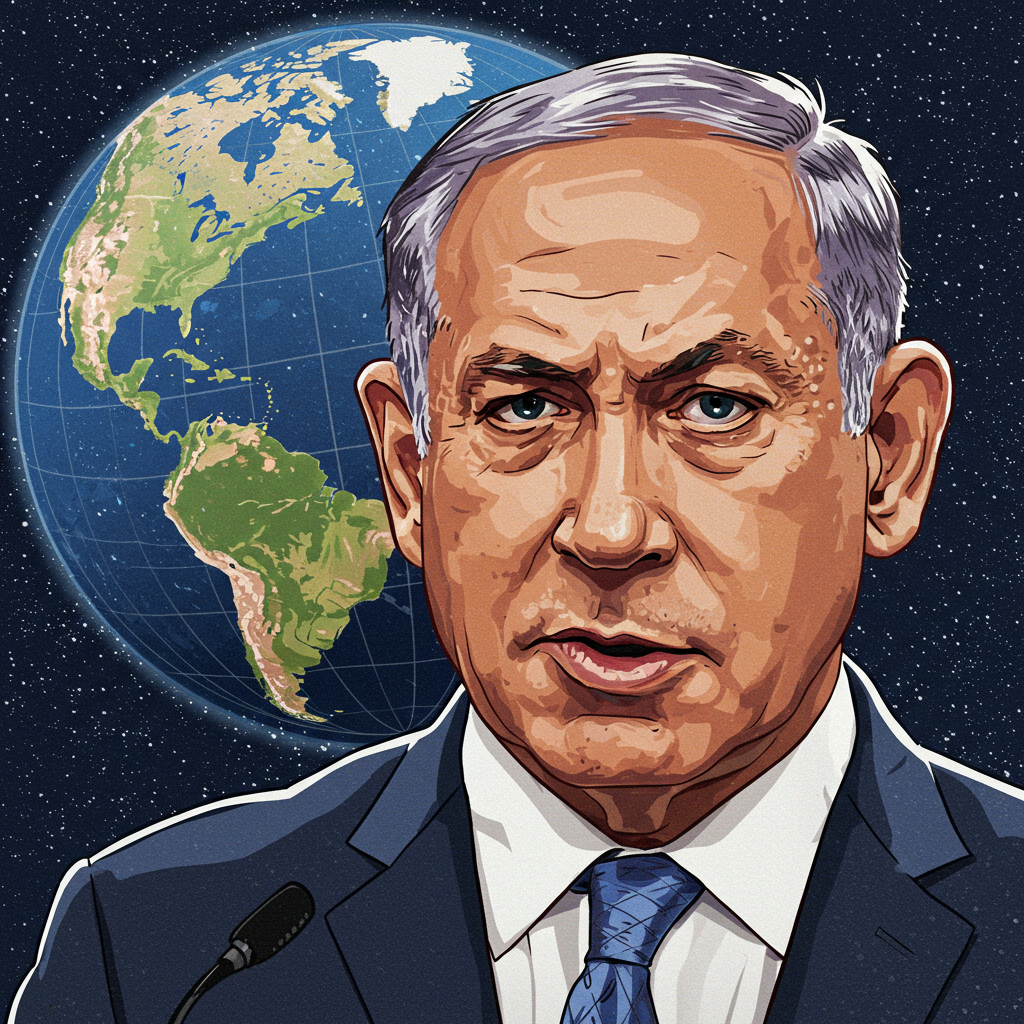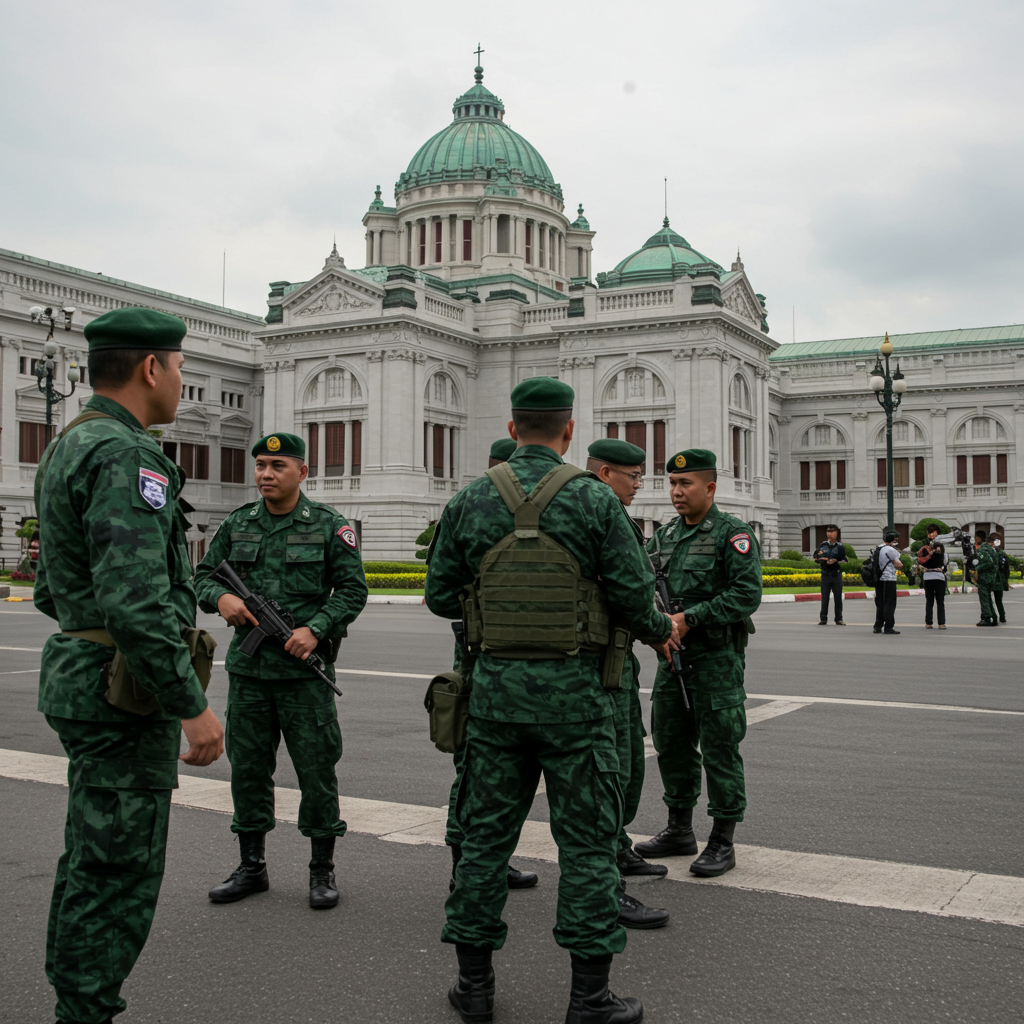Israel’s recent airstrike in Qatar, targeting senior Hamas leaders, has ignited a firestorm of international condemnation and dramatically escalated diplomatic tensions across the Middle East. Despite widespread global outrage, Israeli officials remain defiant, vowing to pursue their enemies anywhere. This audacious attack has cast a long shadow over fragile peace negotiations, raising urgent questions about regional stability and the future of international mediation efforts.
Israel’s Defiant Stance Amidst Doha Airstrike
On Tuesday, an Israeli airstrike struck Doha, Qatar, reportedly targeting a meeting of Hamas’s leadership discussing a new US-backed ceasefire proposal. In the immediate aftermath, Israel’s Defence Minister, Israel Katz, asserted the country’s “long arm will act against its enemies anywhere.” He added, “There is no place where they can hide,” warning that all involved in the October 7 massacre would be held accountable. The Israeli ambassador to the US, Yechiel Leiter, even stated that if the strike missed its primary targets this time, it would succeed “next time.”
The Target and its Aftermath
The aerial assault, reportedly involving 15 Israeli fighter jets firing 10 munitions, was aimed at neutralizing Hamas’s external leadership. While Hamas claimed all its top leaders and negotiating team were safe, reports indicated five lower-ranked members and one Qatari security force member were killed. Witnesses in Doha recounted hearing up to eight explosions, with CCTV footage capturing plumes of smoke. Despite initial optimism within Israel, a senior official later admitted waning confidence in the strike’s success. Qatar vehemently condemned the attack as “state terrorism” and a blatant violation of its sovereignty, further stating that the US had only provided notification minutes after the strike commenced, challenging Washington’s narrative of prior warning.
Widespread International Condemnation and Diplomatic Backlash
The attack drew sharp, widespread condemnation from around the globe, significantly escalating diplomatic tensions. The United States found itself in an “awkward position,” attempting to balance its strong alliance with Israel against its critical security partnership with Qatar. President Donald Trump expressed “anger and frustration,” stating he was “very unhappy about every aspect of it” and clarified that the decision was Prime Minister Benjamin Netanyahu’s, not Washington’s. He later assured Qatari leaders such an attack would not recur.
A Unified Global Outcry
British Prime Minister Keir Starmer denounced the strike as a reckless breach of Qatar’s sovereignty, arguing it “did nothing to secure the peace.” European Commission President Ursula von der Leyen issued a strong rebuke, declaring “no place for Hamas” but also demanding an immediate ceasefire, “unrestrained access” to humanitarian aid in Gaza, and a two-state solution. Crucially, von der Leyen announced the EU would propose putting bilateral support to Israel “on hold” (excluding civil society and Holocaust memorial), new sanctions on “extremist ministers and violent settlers,” and a “partial suspension of trade” under the EU-Israel Association Agreement, alongside establishing a donation group for Gaza reconstruction. She decried the “man-made famine” in Gaza as a weapon of war that “must stop.” Russia, China, Turkey’s President Erdoğan, Japan, Saudi Arabia, Egypt, the UAE, Morocco, Spain, Pakistan, the Arab League, and the Gulf Cooperation Council all joined in a chorus of condemnations, with the UN Secretary-General António Guterres characterizing it as a “flagrant violation of international norms.”
A Blow to Fragile Peace Mediation
Qatar, a close US ally, has played a critical role as a crucial intermediary, hosting negotiations aimed at securing a ceasefire in the Gaza conflict. The strike, occurring as Hamas leaders were reportedly discussing a new US-backed ceasefire proposal, directly undermined these sensitive diplomatic efforts. Qatar’s prime minister affirmed Doha’s unwavering commitment to its mediation role but indicated no immediate negotiations were planned in light of the attack. Andreas Krieg, a senior lecturer at King’s College London, described the incident as a “strike right at the heart of regional mediation,” exposing Washington’s perceived inability to enforce its policy of diplomacy. Analysts from the Atlantic Council warned that the strike could derail ongoing hostage negotiations and potentially unravel components of the Abraham Accords, further intensifying an already volatile region.
The Broader Context of an Intensifying Conflict
This recent airstrike is set against the devastating backdrop of the ongoing Israel-Gaza war, triggered by the Hamas attack into Israel in October 2023. That assault resulted in 1,200 deaths, mostly civilians, and the abduction of 250 individuals. Of the 48 hostages believed to remain in Gaza, fewer than half are thought to be alive. Israel’s subsequent offensive has led to a catastrophic humanitarian crisis in Gaza, with over 64,600 Palestinians killed (mostly civilians) and more than 150,000 injured over the last 23 months. Much of Gaza has been reduced to ruins, and Gaza City is now “in the throes of famine” due to Israel’s blockade of aid. Five additional starvation deaths were reported recently, bringing the total to 404 over the past 23 months.
Hostage Families’ Plight and Netanyahu’s Stance
In Israel, the attacks sparked both celebrations and deep anxiety among families of the hostages. Einav Zangauker, whose son was kidnapped, voiced fears for her loved ones, stating, “Why does the prime minister insist on blowing up every small chance for a deal? Why? The people of Israel are tired of this war. End it already and bring everyone back.” Polls reveal broad Israeli public support for a deal to free hostages, yet Netanyahu faces accusations of prolonging the conflict for political gain. Hamas has consistently offered to release all hostages if Israel ends the war and withdraws its forces, while Netanyahu pushes for a comprehensive deal including disarming Hamas and exiling militant leaders. Amos Nadan suggested the Qatar strike could be a strategic move, similar to past targeted assassinations, potentially signaling a concluding phase of the war.
Escalating Actions Beyond Qatar: The Yemen Strikes
Concurrently with the Qatar strike, Israel deployed air power in Yemen on Wednesday. Almasirah TV, run by the Houthi militia, reported hits on the defense ministry in Sana’a, while Israeli Army Radio claimed Houthi headquarters and military camps were among the targets. This follows an August Israeli strike that killed Houthi Prime Minister Ahmed al-Rahawi. The Iran-backed Houthis have been active in the Red Sea, targeting vessels in solidarity with Palestinians and firing missiles towards Israel, most of which have been intercepted.
Navigating the Truth: Challenges in Reporting from Gaza
Reporting on the Gaza conflict has been fraught with significant challenges, amplifying the humanitarian crisis. Israel has imposed severe restrictions, including banning international reporters from entering Gaza independently since October 7, 2023. Foreign journalists are only permitted under Israeli military escort, with no control over their movements or ability to speak to Palestinians. Over 180 Palestinian journalists have been killed, with the Committee to Protect Journalists (CPJ) determining at least 19 were “directly targeted by Israeli forces.” Legal and diplomatic efforts to gain independent access have been unsuccessful, with Israel’s Supreme Court rejecting petitions on security grounds. Trusted journalists on the ground, verification of third-party visuals, and data from established organizations become critical for accurate reporting under such constraints.
Reshaping Alliances and Public Opinion
The international fallout from Israel’s actions extends to reshaping alliances and significantly impacting public opinion, particularly in key Western nations. A recent meeting in London between UK Labour leader Keir Starmer and Israeli President Isaac Herzog highlighted “competing visions” for Israel’s security and Palestinian self-rule. Starmer condemned the Doha strike as a violation of sovereignty, while Herzog lauded it as “important and correct.”
UK Public Sentiment and Political Ramifications
New Ipsos Mori polling underscores a significant shift in UK public sentiment:
75% of the UK public believe Israel’s military actions in Gaza have “gone too far,” rising to 80% among Labour voters.
The British electorate holds the Israeli government most responsible for the war (23%), ahead of Hamas (20%) and the US (3%).
44% support the UK recognizing Palestine as a country, compared to just 13% against it.
Significantly, 49% of the public believe Starmer has not done a good job on the Palestinian issue.
These figures present a considerable domestic political challenge for Starmer. The EU’s proposed economic measures, including potential sanctions and trade suspensions, further reflect a growing international isolation of Israel, despite concerns from some member states like Germany and Hungary.
Frequently Asked Questions
What was the immediate global reaction to Israel’s airstrike in Qatar?
The immediate global reaction was overwhelmingly critical, with widespread condemnation from numerous international bodies and countries. The United Nations Secretary-General, the European Union, the Arab League, and nations including the US, UK, Russia, China, Turkey, Saudi Arabia, and Egypt denounced the attack. Many, including Qatar itself, labeled it a violation of sovereignty and “state terrorism,” leading to significant diplomatic tensions.
How did the Qatar airstrike impact ongoing peace mediation efforts for the Gaza conflict?
The Qatar airstrike severely damaged ongoing peace mediation efforts. Qatar, a crucial intermediary, had been hosting sensitive negotiations for a ceasefire, with Hamas leaders reportedly discussing a new US-backed proposal at the time of the strike. While Qatar affirmed its commitment to mediation, immediate negotiations were suspended, and experts warned the incident could derail hostage talks and compromise Qatar’s future viability as a neutral facilitator.
What are the broader political and humanitarian consequences of Israel’s recent actions, including the Qatar strike and Gaza operations?
Israel’s recent actions have far-reaching political and humanitarian consequences. Politically, they have intensified international isolation, as seen by the EU’s proposed sanctions and trade suspensions, and strained relations with key allies like the US and UK. Humanitarianly, the ongoing offensive in Gaza has led to over 64,600 Palestinian deaths, 150,000 injured, widespread destruction, and a “man-made famine,” with residents ordered to evacuate areas already under siege. These actions collectively deepen regional instability and complicate any path toward a lasting peace.
Conclusion: A Precarious Future for Middle East Diplomacy
The Israeli airstrike in Qatar, alongside ongoing military operations in Gaza and Yemen, marks a critical juncture in the escalating Middle East conflict. Israel’s defiance in the face of widespread international outrage underscores a determination to act unilaterally against perceived threats, even at the cost of diplomatic isolation and the undermining of peace efforts. The global backlash, including potential economic sanctions and a significant shift in public opinion, highlights the precarious position of international diplomacy. As the humanitarian crisis in Gaza deepens and the rhetoric on all sides hardens, the path to a lasting resolution appears more challenging than ever, demanding urgent and coordinated international intervention to prevent further escalation and human suffering.




